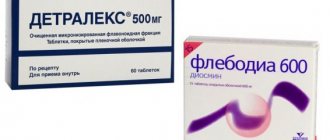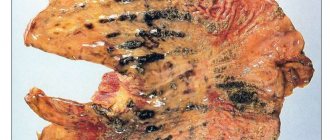Acute form of the disease
A doctor gives sick leave when an illness prevents a person from performing assigned tasks at work, that is, he loses his ability to work. The acute form of the disease is characterized by inflammation of the gastric mucosa and usually occurs as a result of poor diet or long-term treatment with certain medications. The disease can also be caused by food allergies or toxic poisoning. In the acute form, inflammation spreads throughout the gastric mucosa.
Signs of the disease
The acute form of the disease occurs with the following symptoms:
- urge to vomit;
- severe diarrhea;
- constant feeling of heaviness in the stomach;
- pale skin;
- dizziness, as well as increased weakness;
- gray-white coating on the tongue;
- pain or discomfort when palpating the stomach area;
- increased salivation or, conversely, dry mouth.
A timely visit to a doctor if the above symptoms occur will help you avoid serious complications and quickly recover from the disease. If measures are not taken, the pathology becomes chronic.
Diagnostics
To make a diagnosis, the gastroenterologist prescribes a full diagnosis:
- ultrasound examination of the stomach;
- blood analysis;
- cytological examination;
- gastroscopic examination.
In addition, stomach secretions are taken for analysis. In some cases, an x-ray of the chest and entire gastrointestinal system may be prescribed. If the diagnosis is confirmed, the doctor prescribes treatment.
Do they give sick leave for gastritis?
The attending doctor, having diagnosed the patient and assessed his condition, can give sick leave for a period sufficient to cure the signs of the disease. If gastritis occurs with minor symptoms and the patient is treated on an outpatient basis, then the doctor, after assessing his general condition and making recommendations for treatment, may prescribe sick leave for up to 15 calendar days.
If the patient must undergo treatment in a hospital setting, then the doctor gives sick leave for the entire duration of the person’s stay in the hospital. Additionally, the attending physician can add sick leave for 10 days. During this period, the patient will be at home after the hospital and should fully recover.
Treatment of gastritis in the hospital
When the patient is in serious condition due to exacerbation of gastritis, the person is admitted to a medical institution to eliminate the painful symptoms. The patient has the right to request diagnostic measures and a course of treatment directly in the hospital.
Mandatory conditions for hospital treatment
The patient needs hospitalization if dehydration is observed. The following signs indicate what is happening: excessive dryness of the skin and mucous membranes, extreme thirst, dark urine, and rare urination. Situations often arise when, during an exacerbation of the disease, a person becomes ill, severe weakness and dizziness occur. Vomiting becomes too frequent and paroxysmal.
Upon admission to the hospital, they try to empty the patient’s stomach and get rid of the contents. They are trying to provoke a gag reflex. If the patient is unable to act independently, the medical staff performs a gastric lavage procedure.
At first, the patient is not offered food; only plenty of fluids are given. It is acceptable to drink tea, pure or mineral water, and infusions of herbs approved by your doctor. The regimen continues for the first two days of hospital stay. On the third day, homemade chicken broth, kefir, and light soups are already allowed.
After noticeable improvements in the patient’s condition, it is allowed to eat porridge, preferably liquid, soft-boiled eggs, jelly, and crackers. While in the hospital, the patient is kept in bed, especially if there is intense and persistent pain.
To alleviate the condition and reduce pain, the gastroenterologist will prescribe medications that have an analgesic effect. For example, besalol or belastesin. Drug therapy in a hospital involves prescribing enveloping drugs to a person with gastritis that can reduce inflammation and have an antimicrobial and antispasmodic effect. De-nol copes with the tasks perfectly.
If the patient is being treated in a hospital, the person may be given a 5% glucose solution or saline solution to help treat dehydration. In particularly unfavorable cases, medications are prescribed to stimulate tone (caffeine, mezatone).
Today, treatment methods include the use of absorbent agents necessary to completely cleanse the intestines. It is important to take various vitamin complexes to restore the body.
Exacerbation of chronic gastritis
The chronic form of gastritis is an inflammation of the mucous membrane that lasts for a long time and is characterized by periods of exacerbations. Most often, an exacerbation is caused by a violation of the diet, alcohol, changes in diet, or stress.
Symptoms
When the disease worsens, the patient experiences the following symptoms:
- decreased appetite;
- feeling of heaviness in the upper abdomen;
- heartburn;
- pain in the stomach area that occurs after eating;
- belching;
- nausea, and in some cases vomiting.
Exacerbation of the chronic form of the pathology can sometimes occur with diarrhea or constipation. In addition, increased irritability and fatigue, mood swings, suspiciousness, or sleep disturbances may occur.
Diagnostics
If any of the above signs appear, and even if a person has been suffering from chronic gastritis for years, you should consult a doctor. After all, an advanced disease can provoke the development of dangerous consequences.
To make a diagnosis, the doctor uses the following diagnostic measures:
- Fibrogastroduodenoscopy. This study allows you to accurately determine the presence of a chronic form of gastritis. And also find out whether the patient has high or low acidity.
- Blood analysis.
Based on the results of a comprehensive diagnosis, the doctor prescribes effective treatment.
Before asking whether sick leave is given for gastritis, you need to understand that the disease has 2 courses - acute and chronic, which manifest themselves in different ways. Gastritis is an inflammatory process in the stomach. In the chronic form, attacks occur regularly, but not often. In acute gastritis, all manifestations are vivid.
Go to work or to the doctor for sick leave?
If the severity of the condition does not allow the patient to continue working, and gastritis needs to be treated urgently, then, of course, he is always issued a certificate of incapacity for work.
In case of chronic diseases, during their exacerbation, symptoms appear that make the performance of work duties impossible - these are unabated pain, frequent vomiting, diarrhea. If you have such manifestations, you should definitely seek help from a doctor. And he will decide whether to give sick leave and treat the patient at home or hospitalize, or maybe simply prescribe measures to eliminate the symptoms and send him home. In any case, every patient should know that with gastritis you can get sick leave, but this depends on the severity of the symptoms that arise.
Many of us, when signs of exacerbation occur, do not seek help from a specialist, self-medicate and think that the deterioration will go away on its own. They suffer, but they go to work. Trying to cope with the deterioration of the condition on their own, the patient continues to work, but this is fraught with negative consequences for health. Self-medication can significantly aggravate the situation and lead to serious complications.
If your stomach hurts, if you feel unwell, consult a doctor, because a simple pain may hide a serious problem: erosive, ulcerative or even atrophic gastritis
Exacerbation of chronic gastritis
With a prolonged inflammatory process in the gastric mucosa, chronic gastritis develops. Like any other chronic condition, inflammation of the mucous membrane also occurs with periodic exacerbations, which are provoked by the following factors:
- violation of the prescribed diet;
- drinking alcohol;
- spicy or fatty foods eaten the day before;
- experienced stress, etc.
Recently, many people travel frequently and do not mind trying exotic cuisine.
If you know about your illness, but really want to try a spicy piece of an exotic dish, start with small portions and know how to stop in time.
Symptoms during exacerbation of chronic gastritis are as follows:
- heaviness and feeling of fullness in the upper abdomen;
- 1-1.5 hours after eating, stomach pain may occur;
- belching;
- heartburn;
- nausea and vomiting;
- lack of appetite.
Sometimes a person experiences intestinal symptoms, which include rumbling in the stomach, development of diarrhea or constipation.
If we talk about astheno-neurotic syndrome, then at the time of exacerbation of gastritis it is also present and is manifested by increased fatigue, rapid mood swings, increased irritability, loss of sleep, and obsessive thoughts. It is important to know which doctor treats gastritis, methods of diagnosis and treatment.
Diagnostic measures
If you notice the first symptoms of an exacerbation, immediately go to a therapist or gastroenterologist, they are the ones you turn to when you have stomach problems. Even if you have been suffering from chronic gastritis for many years and know roughly what to do in case of an exacerbation, medical help will still be necessary. Since gastritis in advanced cases often leads to stomach ulcers or other equally dangerous diseases.
First of all, the patient is sent for examination, and fibrogastroduodenoscopy is performed. It determines the presence of the disease and reveals in what form gastritis occurs - with high or low acidity.
In addition, a person must donate blood for general and biochemical analysis. Only after these diagnostic measures can doctors prescribe the correct treatment and also give sick leave to the patient.
Note to the patient
All questions regarding the issuance of a certificate of incapacity for work, treatment and other aspects of the disease should be discussed with the treating doctor. Only a doctor can deal with this problem (or rather, its solution). Therefore, when the first symptoms appear, always contact a gastroenterologist and do not self-medicate.
If there are symptoms of acute gastritis or exacerbation of chronic gastritis, the doctor will prescribe the necessary examination and, based on its results, will decide to issue a sick leave certificate confirming the patient’s incapacity for work during the period of illness.
General recommendations for exacerbation of gastritis
In addition to the medications prescribed by the doctor, the patient must strictly follow a diet. It is based on avoiding fatty, fried and spicy foods. It is necessary to ensure that the food consumed is not too hot or cold.
Food is prepared in three main ways:
During exacerbation of gastritis with low acidity, it is not recommended to eat raw vegetables and fruits. At this time, you should switch to pureed soups, cereals and purees. They envelop the gastric walls, thereby reducing pain and eliminating heartburn.
You need to eat often and in small portions. You can take food 5-6 times a day, dividing it into small parts.
Diagnosis, treatment and diet
If early manifestations of exacerbation of gastritis are detected, you should make a visit to medical specialists such as a therapist and gastroenterologist in advance.
This is necessary even when the patient knows that he has had problems with the gastrointestinal tract such as chronic gastritis for a long time.
The fact is that gastritis often leads to ulcers or other, sometimes more serious, diseases and complications.
First of all, the attending physician may prescribe a fibrogastroduodenoscopy procedure. This type of study allows you to reliably identify the presence of chronic or acute forms of gastritis.
In addition, using the procedure, you can find out what level of acidity the patient has: high or low. Clinical and biochemical blood tests must be carried out.
After completing comprehensive examinations and receiving the results, the doctor will be able to prescribe the correct course of treatment.
In most cases, when there is an exacerbation of the above-mentioned disease, doctors immediately advise focusing on what diet and diet the patient is following.
Diet in the process of exacerbation of chronic gastritis means limiting to a minimum or completely eliminating fatty, fried, spicy foods. Food should not be too hot or too cold.
For gastritis and its exacerbation, it is recommended to cook food using steam. In addition, dishes are allowed to be heat treated in the form of boiling and baking.
You should not eat raw vegetable or fruit products during the acute phase of the disease. A much more acceptable option would be to eat pureed soups, jelly or cereals.
These types of dishes can envelop the gastric wall, and also reduce the intensity of pain and relieve the symptoms of heartburn.
You need to eat food 6 times a day, however, each portion should be halved (compared to the standard portion of a healthy person).
The diet also requires adherence to certain rules. In particular, drinking water while eating is prohibited. You can quench your thirst by drinking clean, non-carbonated liquid.
After meals, you should not eat sweet foods in the form of desserts, as this can lead to fermentation in the stomach cavity.
If gastritis is in the acute stage, the patient should not abuse any alcoholic beverages. Diet and alcohol are categorically incompatible.
The process of smoking (both active and passive types) is also extremely harmful.
During an exacerbation, medical experts advise all people suffering from gastritis to go on “sick leave” for a full recovery process of the body.
The fact is that the presence of nervous tension, insomnia and improper fast eating (rather than a healthy diet) can cause not only gastritis or exacerbation of inflammation in the stomach, but also gradually lead to peptic ulcers.
It is important to emphasize that it is advisable not to practice self-medication for gastritis and its exacerbation.
The use of any dubious folk recipe can lead not only to a worsening of the symptomatic manifestations of gastrointestinal inflammation, but also to the development of an allergy to the plant ingredients of any decoction or herbal collection.
It is advisable to always listen to the prescriptions of a professional doctor in the field of gastroenterology, who can recommend an effective course of therapy to the patient.
Only by following all the doctor’s instructions will it be possible to determine exactly how long it will take to cure stomach inflammation at the acute stage.
Some home remedies can be used exclusively for remission of the inflammatory process, because completely replacing the doctor’s prescriptions is simply unacceptable.
As you know, any diet must be followed in combination with the use of drug therapy.
The latter should be aimed at reducing the intensity of symptomatic manifestations and strengthening the protective barrier of the tissues of the gastric wall.
In order to reduce heartburn, medications in the form of tablets such as Gastal can sometimes be prescribed.
When gastritis occurs along with an increase in acidity levels, a variety of antacid drugs are used.
They come in the form of suspensions (drugs like Almagel, Phosphalugel), as well as tablets (drugs like Maalox).
In rare cases, medical experts may prescribe specific medications to patients in tablet form, which consist of:
- Famotidine.
- Ranitidine.
- Gastropina.
These medications can help reduce acid secretion, pain, heartburn and nausea.
In order to normalize the digestive process, doctors can often prescribe medications like Festal and Panzinorm.
When, during diagnosis, a bacterial infection of the genus Helicobacter pylori is detected, it is imperative to take medications that can destroy it.
Experts have already proven that this type of bacteria itself can provoke the appearance of such a dangerous illness as peptic ulcer in the stomach or duodenum.
Medical specialists have successfully used some medications in this area. They consist of:
- Omeprazole.
- Pylorida.
- Tindazole.
- Clarithromycin.
- Amoxicillin.
In order to quickly cure gastritis, doctors also recommend using various herbal remedies that have enveloping and astringent properties.
These could be, for example, decoctions of flaxseeds, mint infusions, chamomile decoctions, etc. However, the use of these folk remedies is allowed only after a visit to the attending doctor.
An experienced specialist will determine the severity of the disease. The doctor will also prescribe appropriate treatment for the patient and advise which diet will be most appropriate for a particular patient.
In order for the diet to be prescribed taking into account all the existing individual characteristics of the sick person’s body, it is necessary to obtain additional advice from a qualified nutritionist.
Only after a visit to this specialist can you be sure that the diet will benefit the body in the process of combating exacerbation of gastritis.
Some details of sick leave registration
Only the attending physician determines how long sick leave is given and chooses treatment tactics. It is based on actions aimed at eliminating the symptoms of the disease and protecting the gastric mucosa.
To eliminate heartburn, Gastal tablets are prescribed. Antacids are necessary for gastritis with high acidity. They eliminate signs of high acidity, such as heartburn, belching, nausea and stomach pain, and fight the problem itself. Such drugs include Almagel, Maalox, Phosphalugel.
There are also medications that can restore the digestive process, such as Festal and Panzinorm. The onset of gastritis is often provoked by pathogenic microorganisms such as Helicobacter pylori, in which case a course of antibacterial therapy will be required.
Herbal ingredients can also have a healing effect on the stomach.
So many medicinal herbs have an enveloping property, which has a beneficial effect on the inflamed mucous membrane of the organ.
These include flaxseed, chamomile, mint, plantain, etc. The acute period is often treated in a hospital.
When the period of exacerbation passes, you should not return to your previous lifestyle, otherwise relapses of gastritis will occur more and more often. And after this, complications of the disease will begin. To prevent this from happening, you should lead a healthy lifestyle, eat right, exercise, avoid snacking and eating processed foods, and give up alcohol and smoking.
If you consult a doctor in time for gastritis, the symptoms of the disease will soon go away. The main thing is not to delay visiting the doctor.
Illness of any nature creates obstacles for any employee to fully perform the duties of his position.
In such cases, a person has the right to interrupt his activities due to the need to undergo a course of treatment. In this case, the nature of the disease does not play a role. You can learn more about sick leave for gastrointestinal diseases in our article.
Dear readers! Our articles talk about typical ways to resolve legal issues, but each case is unique.
If you want to find out how to solve your particular problem, please use the online consultant form on the right or call. It's fast and free!
Grounds for issuing a ballot
Is sick leave given for gastritis or poisoning, pancreatitis or stomach ulcers?
In this case, a certificate of temporary incapacity for work is issued. Exemption is given in cases where a person is physically unable to perform official duties and needs treatment; gastrointestinal diseases are accompanied by:
- diarrhea;
- vomiting;
- stomach pain;
- dizziness;
- elevated temperature.
Does it happen that sick leave, for example, for gastritis, is not given for some reason?
Indicators for receiving sick leave
A sick leave certificate is intended to be provided to official enterprises or firms to confirm a person’s incapacity for a certain period. Any citizen has the legal opportunity to contact a health care institution to receive medical care in conditions of poor health. If the patient’s condition requires treatment in an inpatient or outpatient setting, he has the right to obtain a sick leave certificate, which confirms the patient’s temporary incapacity.
Sick leave is issued in accordance with regulations approved by the Ministry of Health. If a person has a temperature above thirty-seven degrees, then, in combination with other symptoms of illness, the patient should be given a sick leave, or in case of a serious illness, sent to an inpatient department for treatment. Sometimes the illness may not be accompanied by a rise in temperature, then the attending doctor, based on the symptoms, decides whether there is a need to issue a sick leave certificate, as well as for what time period. A certificate of incapacity for work is never issued to a patient for one day; the minimum duration of sick leave is three days.
How many days does paid sick leave last on average?
The duration of any leave from work depends on the nature and severity of the illness. This also applies to problems with the gastrointestinal tract.
How many days is sick leave given for stomach or intestinal ulcers, gastritis, pancreatitis and poisoning?
- In case of poisoning, a person can be released for a period of 2 to 60 days. The maximum period is associated with severe cases. An example is ethyl alcohol poisoning.
- For gastritis, the duration of release will be from 18 to 20 days. A similar duration of sick leave will be for a stomach or intestinal ulcer.
- For pancreatitis, release will last from 12 to 14 days.
In practice, sick leave is opened for 3 days. This is the time it takes for a person to get tested. After this, the doctor makes a decision.
According to general rules, treatment on an outpatient basis does not exceed 15 days. A longer period can be established only by decision of the commission. After this, as a rule, the person can be placed in a hospital setting. In most cases, this is due to the need for surgical intervention.
What affects the duration?
The length of time off from work is determined by several factors. First of all, this is the type of disease. The severity directly affects the duration of treatment. For example, in case of ordinary poisoning, a person simply needs to rinse his stomach and after two or three days he will be able to work fully. But with a peptic ulcer, hospitalization may be required.
The duration of sick leave also depends on the severity of the consequences. There are often cases when problems with the gastrointestinal tract can disrupt the functioning of other organs.
In some cases, the sick leave period may be extended. This applies to situations where treatment has not had a positive effect or complications have arisen. In such situations, the doctor has the right to extend treatment for up to 15 days without the decision of the commission. The latter, in turn, can increase the exemption to 10-12 months (15 days each time).
About registration and payment
The attending physician opens a sick note and indicates in it the cause of disability code “01” - disease. Payment is made as usual - the first 3 days are at the expense of the employer, the rest at the expense of the Social Insurance Fund, the amount varies depending on the length of service.
Most disorders of the gastrointestinal tract are diseases, as a result of which a person must be temporarily relieved from performing official duties. The duration of treatment depends on the severity of the disease. A person should contact a medical facility at their place of residence when the first symptoms appear.
If you find an error, please select a piece of text and press Ctrl+Enter.
Didn't find the answer to your question? Find out how to solve exactly your problem - call right now:
+7 (Moscow) +7 (St. Petersburg)
Duration of sick leave depending on the type of gastritis and its treatment option
As already mentioned, there are several types of gastritis, which differ in symptoms and disease progression, and also have different origins. The length of sick leave depends on many factors, the main one of which is the presence of an exacerbation with painful sensations. At the same time, a person’s working capacity is radically reduced or he is absolutely unable to work during a certain period.
Important! The issue of the need for sick leave can only be resolved with the attending doctor, who directly determines the diagnosis and prescribes a treatment option: outpatient or inpatient therapy. Depending on the treatment option, the length of sick leave differs.
Hospital treatment
Hospitalization of the patient is indicated in cases where there are significant criteria for serious pathological changes in the stomach.
Most often, inpatient treatment is prescribed for suspected cases of the following types of gastritis:
- For the erosive type of gastritis, characterized by the presence of wounds on the gastric mucosa. Treatment of gastric erosion requires a special examination of the patient and more serious therapy, which is impossible without hospitalization.
- With the atrophic type of gastritis, characterized by depletion of the walls of the stomach and the death of the glands responsible for the secretion of gastric juice. This type of gastritis is dangerous due to the development of tumors, which can, if treated irrationally, become the source of the evolution of stomach cancer.
- For advanced gastritis, which is accompanied by stomach ulcers. Requires special treatment under the supervision of specialists.
- With pathological autoimmune gastritis, which progresses against the background of thyroid diseases and is very difficult to treat. To achieve remission, an integrated approach is required both to the treatment of the thyroid gland and to pathological disorders of the digestive tract.
In the inpatient department of a medical institution, the patient will be able to undergo a full examination and receive qualified assistance from specialists. Upon hospitalization, the patient will be given a sick leave certificate for the entire period of his treatment in the hospital. Sometimes, by the decision of the attending doctor, sick leave can be extended for ten days after the patient is discharged from the hospital for further rehabilitation at home.











